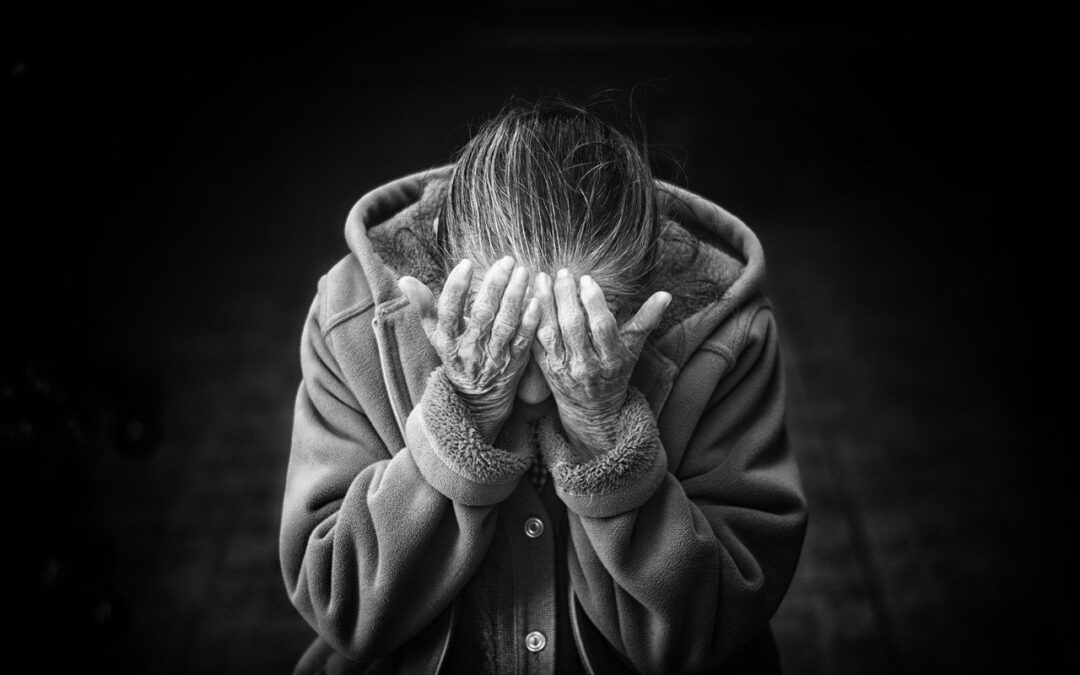Grief is universal.
Just as you cannot avoid death, you also cannot avoid grief.
Sooner or later, it will find you. In fact, it may find you so many times, you could start feeling that life is just a series of grief-filled losses.
Some episodes of grief seem a bit easier to rebound from than others. Maybe you got laid off from a job you loved, only to have it open the door to one that is even more fulfilling. Or when a romantic relationship that once seemed like it would last forever devolves into one of irrevocable hurt and disappointment. You can learn from what went wrong and look for a new one that better fits your innermost needs.
Other episodes of grief can be so deep and so painful, they become downright debilitating. Often, they make you rethink and reevaluate everything you thought you once knew about life itself.
This level of grief often happens as a result of the death of someone so cherished and integral to your life that you can’t imagine life without them.
And if you’re anything like me… it is certainly one of the deepest forms of grief you will ever feel and one of the hardest you will ever have to work through.
While there is no universal timetable or sequence of how we deal with grief as individuals, there are plenty of common themes and reactions to grief that everyone seems to experience.
There are also some universal truths about grief — and life itself — that have the ability to help anyone work through the pain of grief.
Based on my own experience and hearing from countless others who have lost a loved one, here are some of the basic truths that have helped me and many others work through the devastation of debilitating grief.
Truth #1: You cannot change what has already happened.
Unlike many things and situations in our life and world, death is permanent. Unchanging. And so is the past. Despite our science-fiction fantasies, there are no time-traveling machines that can take you back to undo what has already been done.
This truth seems obvious. But when you’re in the depths of your deepest, darkest grief… logic has a habit of taking a back seat to wishful thinking.
No matter how hard or how long you try, there are no amount of “what if” scenarios you can run through your head to go back in time and make different choices, take different actions, or say what needed to be said.
And yet… nothing you read here is going to keep you from doing this hopeless exercise if you feel compelled to do so (and so many of us do). It is only once you exhaust yourself of the seemingly endless catalogue of “what if” scenarios in your head, you are able to choose to let it go and move one more (productive) step forward in your journey of grief.
Truth #2: The only moment you have any control over is right now.
This is really an extension of Truth #1, but it is so important, it’s worth going into more detail.
Even when we’re not grieving, so many of us get caught up in the trap of trying to control everything and everyone around us. We do it in the name of trying to control our lives down to every last detail. It seems to be human nature to feel that control = safety; lack of control = danger, stress and anxiety.
But reality is not so straightforward and simple.
It is true that we feel more secure when our environments are seemingly under (our) control. But the reality is that all of the time and effort we put into trying to control what is not ours to control is a HUGE source of stress and anxiety in our lives.
We’ve already covered that you can’t change the past. It is out of our control. We also know that we can’t control the future…. or can we? We can INFLUENCE the future through our current thoughts and actions, but we can never control it. Because it hasn’t happened yet. And because it hasn’t happened, it is inherently out of our control.
What is in our control is this moment, and this moment alone. And even in that moment, we are limited to what we can control: OUR thoughts and OUR actions.
Not those of your kids or your spouse. Not those of your parents, boss, coworkers, friends, or random strangers around you. You can influence them to be sure, but you cannot control them. They are not yours to control.
So when you are suffering and feeling completely out of control in grief (and life), here’s what you CAN control…
You can focus your thoughts and attention on THIS moment. You can close your eyes. You can take a deep breath — or as many as you need. You can pay attention to what you are feeling — emotionally and physically. You can remind yourself that what you are feeling is not permanent. You can decide what specific action you want to take right now that may influence a change to what you’re feeling in the next moment.
Maybe that action is to write about what you are feeling in your journal. Call someone who you know who will listen (and not judge or offer advice). Take a walk outside. Hit some pillows. Allow yourself a cleansing deep cry. Do something kind for yourself. Whatever you choose to do, it is the one thing you can control at this very moment.
All of this takes practice. It is not a quick fix. And it will not prevent any future moments of painful or uncomfortable feelings. Which brings us to…
Truth #3: Whatever you’re feeling at any given moment is what you’re supposed to be feeling.
There is no script or manual for what you should feel in grief. Or in life for that matter. Feelings are your (very personal) reactions to your thoughts. And I’ll say it again: whatever you’re feeling at any given moment is what you’re supposed to be feeling.
Why? Because you ARE feeling it. So you might as well accept and honor it.
Sadness. Anger. Rage. Despair. Guilt. Helplessness. Hopelessness. Whatever you are feeling at this — or any — moment is your REALITY.
The very definition of “reality” is, “the world or the state of things as they actually exist, as opposed to an idealistic or notional idea of them.”
Just remind yourself it will not last.
Of course, plenty of people can (and will) tell you how they think you should feel. When people get frustrated or tired with your seemingly endless grief-filled feelings that make them uncomfortable, they will make it known they no longer want you to feel those feelings. Some will feel entitled to bluntly say it to your face; others will try to change the subject and ignore your feelings; and some will drop out of your life completely.
Which brings us to…
Truth #4: Your relationships with others will change.
This truth is a result of basic cause and effect. Your relationships change because YOU have fundamentally changed. As I said earlier, grief on this level makes you rethink and reevaluate everything you thought you once knew about life itself. And when your basic life perspectives change, you change with them.
And not everyone is going to like that change in you.
In the early stages of intense grief, existing relationships with those around you usually take one of three paths: 1) they grow deeper and stronger, 2) they become strained and problematic, or 3) they become estranged or end completely.
Remember Truth #2 and the part about you have no control over what other people think and do? You can certainly influence your relationships by what you say and do… but you cannot control their thoughts and actions. And many times, in the wake of a significant loss, their thoughts and actions are going to feel hurtful.
So if someone doesn’t support you in the way you think they should (or wish they would); if someone you care deeply about falls out of your life because they can’t handle the intense grief; if someone is downright nasty and verbally abusive… you don’t have much (if any) control over it.
There’s usually only a few things you can do…
If someone means well but doesn’t support you in the way you want or need, you can explain what you need by giving realistic examples. If someone is hurtful and doesn’t feel the need to change their behavior, you can distance yourself from them (in hopes that eventually you can re-engage…or not). If someone drops out of your life, you can try to reconnect when your intense grief has softened some.
And the reality is, you’ll most likely make new friends with people who have experienced the same level of loss as you. These new friends will be a welcomed source of comfort and understanding.
Truth #5: You’ll survive this.
Most of us have heard this famous quote from A. A. Milne’s Winnie-the-Pooh:
“You’re braver than you believe, and stronger than you seem, and smarter than you think.”
But you may not have heard the larger quote it is a part of:
“If ever there is tomorrow when we’re not together… there is something you must always remember. You are braver than you believe, stronger than you seem, and smarter than you think. But the most important thing is, even if we’re apart… I’ll always be with you.”
I can’t think of a more wonderful quote for someone who is grieving the loss of a loved one. And it is the absolute truth.
For anyone who is in the deepest, darkest depths of grief, you need to look to others who have been where you are to see that just like them, you will brave the horrible feelings and thoughts; you will find an inner strength you never knew you had; and you will come out of this with a new level of hard-earned knowledge and wisdom.
. . . Have another truth to add to this list? You can share it with others by adding it in a comment to this post.






 This website was inspired by the memory of Margareta Sol Kubitz in hopes of helping others work through the pain of grief.
This website was inspired by the memory of Margareta Sol Kubitz in hopes of helping others work through the pain of grief.